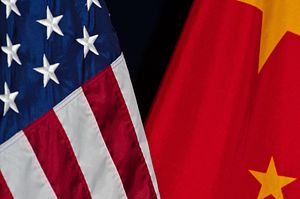A new Pew Research Center survey shows that a significant majority of Americans prefer the U.S. adopting a robust approach toward China. The survey, published by the center on March 4 and based on 2,596 adult respondents, throws up some surprising results. For example, 70 percent of the respondents believed that the U.S. should “try to promote human rights in China, even if it harms economic relations with China,” while 53 percent of those surveyed believed that the U.S should “get tougher with China on economic issues.” Fifty-five percent of respondents supported “limiting Chinese students studying in the U.S.”
Out of those surveyed, 48 percent said “limiting China’s power and influence is a top priority,” a stunning 16 percent increase from 2018. Sixty-seven percent of the respondents felt “cold towards China” – in distinction to 46 percent who felt that way three years ago.
A novel feature of the latest Pew survey was the inclusion of an open-ended question: “We’d like to learn a little bit about what you think about when you think about China. Please share the first things that come to mind when you think about China.” Out of the 2010 responses to this question, 20 percent said “human rights,” with “economy” being a close second, at 19 percent. However, only 13 percent said “threats” came to their minds.
If all this sounds music to the ears of those in the Biden administration as it prioritizes human rights and the values pillar in U.S. foreign policy, there is also a note of concern in the survey. 46 percent of the respondents reported that they have “no confidence” in Biden to “deal effectively with China.” In fact, as the survey reported, “Americans have less faith in Biden to deal with China than to handle other foreign policy issues,” including dealing with allies or even around the use of military force.
However, attitude of Americans toward China is generally in sync with their political orientation and shaped along partisan lines. As the survey notes, “Republicans are significantly more likely to say the U.S. should get tougher on China on economic issues (instead of trying to strengthen economic relations), to describe China as an enemy of the U.S. – rather than as competitor or partner – and to have very cold feelings toward China.”
“The gap between the parties on these issues has grown over the past year, too, with Republicans increasingly describing these issues as very serious but Democratic opinion changing little,” it added.
In October last year, another Pew survey showed that negative opinion of China in the United States increased by almost 20 percent since Donald Trump assumed the presidency in 2016. That survey – which included 13 other advanced industrialized nations across the Asia-Pacific, Europe and North America — showed that while negative public opinion about China had been on the rise since 2006, it became particularly pronounced since 2013 when Xi Jinping became China’s president.

































